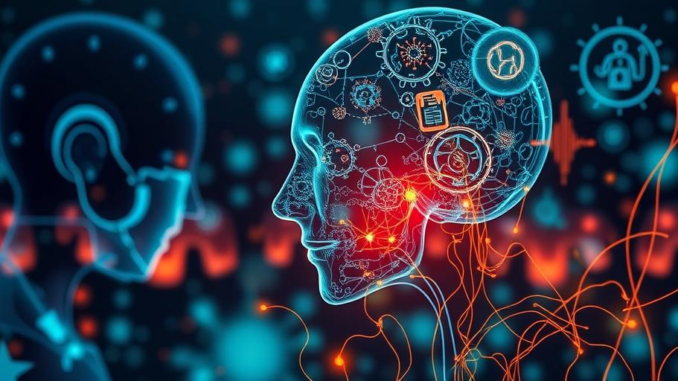
Summary
AI is revolutionizing disease prediction by identifying risk factors years before symptoms appear. This technology analyzes patient records to predict diseases like Alzheimer’s with remarkable accuracy, potentially changing how we approach healthcare. Early detection allows for earlier intervention, which could significantly alter the disease’s trajectory or mitigate its impact.
** Main Story**
AI is changing medicine fast, and you know what’s really exciting? Its potential to predict diseases years before symptoms even show up. Imagine, intervening early, maybe even preventing diseases from taking hold. It’s a game changer.
Alzheimer’s Prediction: A Real Breakthrough
Take Alzheimer’s, for instance. AI can forecast it up to seven years early! Now, how cool is that? Researchers are using machine learning to comb through electronic health records, spotting patterns even the best doctors might miss.
These models look at everything, you know? Medical history, age, medications, lab results… And get this: they’ve found that things like high cholesterol and osteoporosis, especially in women, are big clues for Alzheimer’s. For men, erectile dysfunction and an enlarged prostate are apparently significant indicators. It’s not just about one factor; it’s the whole picture.
How Does AI Actually Predict Diseases?
So, how does AI do it? Well, it’s all about handling the messy, complex stuff in medical data. Machine learning algorithms, like Random Forest models, are amazing at finding hidden relationships. It’s like they can see connections that we humans just can’t.
These algorithms are trained on tons of patient data, and that training teaches them to recognize the patterns and combinations of things that increase disease risk. This lets AI find people at high risk before they even notice anything is wrong, which is pretty remarkable.
The Upsides of Early Detection
Why does detecting diseases early matter? Let me tell you:
- Get in Early: Timely action, whether it’s lifestyle changes, medication, or other treatments, can slow down a disease or even stop it altogether.
- Better Outcomes: Starting treatment sooner means better health, a better life, and maybe even a longer one.
- Cheaper Healthcare: Preventing or delaying chronic diseases lowers the strain on our healthcare systems. That benefits everyone.
More Than Just Alzheimer’s
And it’s not just Alzheimer’s. AI has more potential. Researchers are looking into how it can predict other things, such as:
- Heart Problems: AI looks at things like blood pressure, cholesterol, and family history to guess the chances of heart attacks and strokes. Think preventative care on steroids!
- Cancer: AI is able to pick up on subtle changes in medical images, you know, mammograms and CT scans, that might indicate early cancer. Early detection is key!
- Sepsis: In intensive care, AI can predict sepsis hours before any symptoms show up. That can save lives. Literally!
What’s Next for AI in Healthcare?
AI is going to transform healthcare in ways we can barely imagine, and predictive medicine is just the tip of the iceberg. As the tech gets better, we’ll see even more advanced ways to detect diseases early, create personalized treatments, and improve patient care. It’s a future where diseases are managed better, and everyone’s healthier.
Of course, it’s not all sunshine and roses. We have to be careful about data privacy, make sure algorithms aren’t biased, and remember that doctors are still crucial. If AI continues to grow, we must develop and use it well, with ethics in mind, to make the world healthier.


Be the first to comment